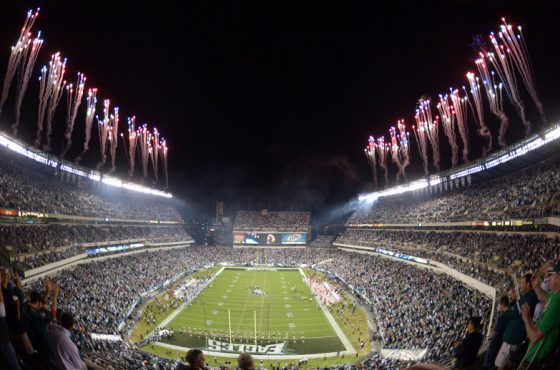Texas Bathroom Bill Draws the Ire of NFL and NBA
Something interesting is happening right now in the world of Texas sports. For the past couple years, the issue of transgender rights has taken center stage in the sociopolitical arena. Naturally there has been considerable backlash against this push for greater trans visibility and inclusion. One such issue has had to do with bathrooms; whether trans people, and in particular trans women, should be allowed to use the bathroom consistent with their gender identity. In many conservative states, ‘bathroom bills’ have been proposed to limit trans people’s access to public waste facilities. The Texas bill would require people to use bathrooms that correspond to the sex on their birth certificate. Now the spotlight is shining on the state of Texas where a proposed ‘bathroom bill’ has stirred controversy and unrest in the world of professional sports.
A week ago, the NFL warned the Texas government that their proposal to limit transgender access to bathrooms could impact future decisions about the location of major sporting events (this on the heels of a Houston-hosted Super Bowl). In a statement issued a little more than a week ago, league spokesman Brian McCarthy hinted that the proposed bill, called Senate Bill 6, would affect the NFL’s future decision-making regarding future event locations.
“The NFL embraces inclusiveness. We want all fans to feel welcomed at our events and NFL policies prohibit discrimination based on age, gender, race, religion, sexual orientation, or any other improper standard,” McCarthy said. “If a proposal that is discriminatory or inconsistent with our values were to become law [in Texas], that would certainly be a factor considered when thinking about awarding future events.”
A few days later, Texas Governor Greg Abbott ripped into McCarthy and his statement, saying, “For some low-level NFL adviser to come out and say that they are going to micromanage and try to dictate to the state of Texas what types of policies we’re going to pass in our state, that’s unacceptable.
“We don’t care what the NFL thinks and certainly what their political policies are because they are not a political arm of the state of Texas or the United States of America. They need to learn their place in the United States, which is to govern football, not politics.”
However, this is nothing new for the NFL. In 2016, Georgia Republican Governor Nathan Deal vetoed a “religious liberty” bill after the NFL suggested it might lead the league to denying Atlanta the chance to host Super Bowls in the future. Similarly, the NCAA pulled seven championship events from North Carolina after they enacted a similar bathroom bill; the NBA also relocated the All-Star Game from Charlotte to New Orleans in response. While the bill in North Carolina, called HB2, remains in effect, it is clear that professional sports organizations are committed to inclusivity and justice. Moreover, as per the Georgia example, it’s clear that organizations such as the NFL and the NCAA indeed have the political clout to effect policy decisions.
This is what NBA commissioner Adam Silver had to say about the issue this past weekend:
“I’m not ready to stand here today and say that that is the bright line test for whether or not we will play All-Star Games in Texas. [But] it’s something we’re, of course, going to monitor very closely. What we’ve stated is that our values, our league-wide values in terms of equality and inclusion are paramount to this league and all the members of the NBA family, and I think those jurisdictions that are considering legislation similar to HB2 are on notice that that is an important factor for us. Those values are an important factor for us in deciding where we take a special event like an All-Star Game.”
Silver also stated, “We’re not involved directly with legislatures. I have talked to Governor Cooper, the new governor of North Carolina since he was elected, really to express our desire to return to North Carolina next year [2019] for our All-Star Game. We have a team in North Carolina. We have a development team, soon to be a G-League team, in North Carolina. And 20 other teams will visit North Carolina this season. So we’d very much like to get back there.”
Since 2004, Texas has hosted more combined NBA All-Star Games, Super Bowls, and NCAA men’s Final Fours than any other state. Their warm weather and giant, cutting edge stadiums make Texas an appealing locale for these sorts of events. San Antonio alone is scheduled to host another Final Four in 2018, and Dallas is hosting the women’s NCAA Final Four in April. So while Gov. Abbott is upset about the NFL’s and the NBA’s efforts to impact the fate of Texas legislature, he needs to seriously consider the role that these institutions play in the economic sphere of his state.
Besides, it is nothing new for corporate entities to influence policy decisions. Lobbying is a major part of political legislature in the United States. If organizations with vested interests in tobacco, textiles, guns, and other commodities are able to pour billions of dollars into the pockets of politicians, the NFL and the NBA have just as much of a right to intervene. Plain and simple it just comes with the territory.
Whether or not Abbott and the rest of the Texas legislature plan on accounting for the NFL’s and NBA’s stances on the matter is ultimately up to them. State governmental freedom is perhaps the most important aspect of government in the United States. But so is corporate freedom, and as we know, money talks in America. So billion-dollar organizations like the NFL and NBA do have their place in the political realm. In fact, some might argue it is their responsibility as associations of such strong social and political power to stand up for matters of inclusivity and equality wherever they can.
Whether Abbott likes it or not, his and his government’s actions have consequences beyond their control. If they choose to enact Senate Bill 6, that is ultimately their state right. But if they do so, they must accept the potential social and financial repercussions that go along with it.





